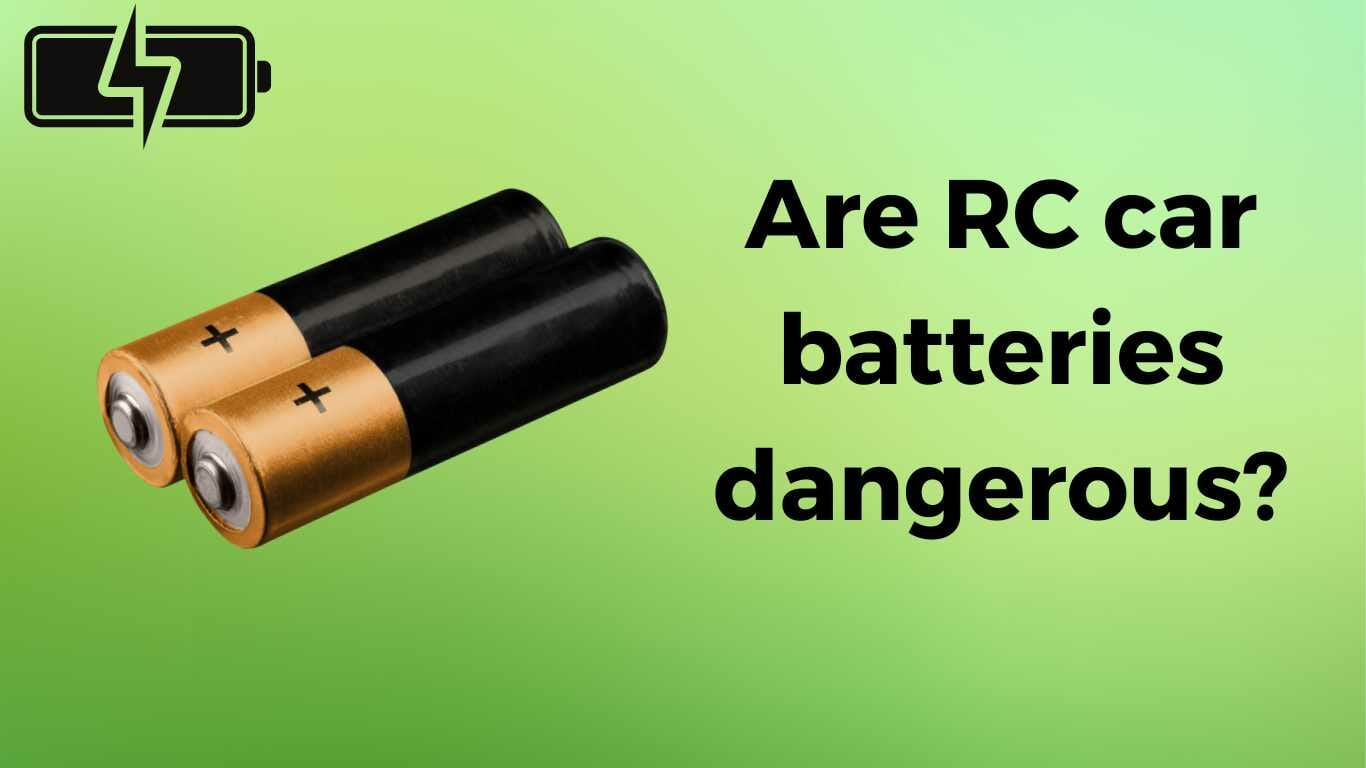Remote-controlled (RC) cars are a popular hobby among many people, young and old. These miniature vehicles are powered by batteries, which allow them to move at high speeds and perform stunts. However, with the power and speed that comes with RC cars, many people may wonder whether RC car batteries are dangerous.
In short, the answer is yes, RC car batteries can be dangerous if not used and handled correctly. This is because the batteries used in RC cars are typically lithium polymer (LiPo) batteries, which have a high energy density and are, therefore, more prone to thermal runaway and fire if mishandled.
Thermal runaway occurs when the temperature of a LiPo battery increases beyond its capacity to dissipate heat, causing the battery to overheat and potentially explode or catch fire. This may take place if the battery has been overcharged, punctured, or otherwise compromised in some manner. In addition, LiPo batteries are also sensitive to impact and pressure, which can cause damage to the battery and lead to thermal runaway.
Therefore, taking certain precautions when handling and using RC car batteries is important. Here are some tips to ensure safe use:
- Always follow the manufacturer’s instructions and guidelines for charging, discharging, and storing the battery. Do not exceed the recommended charging rate or discharge rate, as this can cause damage to the battery and increase the risk of thermal runaway.
- Use a dedicated charger that is designed for LiPo batteries, and never leave the battery unattended while charging.
- Do routine checks on the battery to look for any indications of wear and tear, such as swelling or holes. If you find that the battery has been compromised in any way, you must immediately stop using it and get rid of it in the appropriate manner.
- Store the battery in a fireproof container or bag and away from any flammable materials or sources of heat.
- Always disconnect the battery from the RC car when not in use, and never leave the battery connected while charging.
Final Words:
In conclusion, RC car batteries can be dangerous if mishandled, but with proper use and handling, they can be used safely and enjoyed as part of the RC car hobby. It is essential to follow the manufacturer’s instructions and take the necessary precautions to ensure the safe use and handling of RC car batteries.
Q: Are all RC car batteries dangerous?
No, not all RC car batteries are dangerous. However, the most common type of battery used in RC cars is the lithium polymer (LiPo) battery, which can be difficult if handled or properly used.
Q: Can RC car batteries explode?
Yes, RC car batteries, especially LiPo batteries, can explode if mishandled or damaged. This can happen if the battery is overcharged, punctured, or exposed to extreme heat or pressure.
Q: How can I tell if my RC car battery is damaged?
You can inspect your RC car battery regularly for any signs of damage, such as swelling, punctures, or discoloration. If you notice any damage, discontinue the use of the battery and dispose of it properly.
Q: How should I store my RC car battery?
RC car batteries should be stored in a fireproof container or bag, away from any flammable materials or sources of heat. The battery should also be stored at room temperature and away from direct sunlight.
Q: Can I charge my RC car battery overnight?
No, you should never leave your RC car battery unattended while charging; it is not recommended to charge the battery overnight. Always follow the manufacturer’s instructions for charging and discharging the battery.
Q: What should I do if my RC car battery catches fire?
If your RC car battery catches fire, move away from the area and call the fire department immediately. Do not attempt to put out the fire yourself, as the battery can continue to release toxic gasses even after the fire has been extinguished.
Q: Are there any other safety tips for using RC car batteries?
Yes, some additional safety tips include disconnecting the battery from the RC car when not in use, never leaving the battery connected while charging, and avoiding puncturing or crushing the battery. Always use a dedicated charger designed for LiPo batteries, and never exceed the recommended charging or discharge rate.
